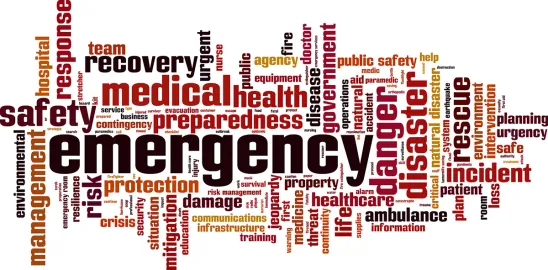The Federal Communications Commission (“FCC”) has a busy agenda planned for its upcoming September 30, 2021 Open Meeting, which will include two items aimed at stopping illegal robocalls.
First, the FCC will consider a Further Notice of Proposed Rulemaking (“Further Notice”) on Shielding 911 Call Centers from Robocalls. With this Further Notice, the FCC attempts to reduce autodialed robocalls to Public Safety Answering Points (“PSAPs”) while addressing concerns about potential security threats that arise from providing broad access to the numbers on the PSAP Do-Not-Call (“DNC”) registry. It would accomplish this by requiring autodialer users to provide their outbound numbers to voice services providers who would be required to block calls from those numbers to numbers on the PSAP DNC registry.
This proceeding would attempt to address a longstanding issue — the creation of a DNC registry specifically for PSAPs. The Tax Relief Act of 2012 had required the FCC to “initiate a proceeding to create a specialized Do-Not-Call registry” for PSAPs, but because of security concerns that came to light as the FCC worked with the Federal Trade Commission to establish the DNC registry, it was never fully implemented. This Further Notice seeks to revise the rules and change the design of the PSAP DNC registry to address security issues and achieve Congress’s goal of protecting PSAPs from unwanted autodialed calls in the most efficient and secure manner.
Specifically, the FCC would propose to require that voice service providers block autodialed calls made to registered PSAP telephone numbers from the PSAP DNC registry. As proposed, autodialers would provide that information on any caller ID service to voice service providers, who would then block outbound calls from those numbers if they were made to registered PSAP numbers. To facilitate its approach, the FCC would propose to give voice service providers access to the PSAP DNC registry. It would also prohibit unauthorized disclosure of information in the PSAP DNC registry and consider a related safe harbor for good faith blocking of numbers erroneously in the PSAP DNC registry.
Second, the FCC will vote on adopting a Further Notice aimed at Targeting Gateway Providers to Combat Illegal Robocalls. The draft Further Notice seeks to help achieve the FCC’s goals of eliminating illegal robocalls originating overseas. This would be the first time the FCC imposed regulations specifically on gateway providers — which it has never previously defined as a distinct category of entities — but would now propose to define as “the first U.S.–based intermediate provider in the call path of a foreign-originated call that transmits the call directly to another intermediate provider or terminating voice service provider in the United States.” While the caller ID authentication rules already require voice service providers to implement STIR/SHAKEN or, if they are subject to a STIR/SHAKEN implementation extension, to implement an appropriate robocall mitigation program, in this Further Notice the FCC would propose requiring gateway providers to apply both of these protections to calls they bring onto the U.S. network. The FCC would also propose to impose specific robocall mitigation obligations, similar to those now imposed on voice services and intermediate providers, on gateway providers. These obligations would include compliance within 24 hours with traceback requests, mandatory blocking following Enforcement Bureau notice of identified illegal traffic and a prompt investigation by the gateway provider, confirming that foreign callers are authorized to use a U.S. number through “know your customer” requirements, and adopting general robocall mitigation standards.
Gateway providers would also be required to submit the same information as general voice service providers to the Robocall Mitigation Database. This would include a certification that they have implemented STIR/SHAKEN or some form of robocall mitigation on their network, the contact information for a person responsible for addressing robocall mitigation-related issues, and describing in detail their robocall mitigation practices.
The FCC has previously imposed a prohibition on accepting traffic from foreign voice service providers that have failed to register in the Robocall Mitigation Database after a certain date. But this requirement has created significant industry pushback because foreign service providers have been slow to register, and imposing this requirement could lead to the blocking of legal and wanted international traffic. Importantly, in this Further Notice, the FCC would recognize the difficulty foreign providers may face in timely registering in the Robocall Mitigation Database, and it would conclude that it will not enforce the foreign provider prohibition during the pendency of this proceeding.





 />i
/>i

